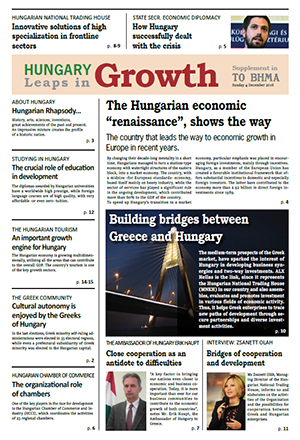Business partners may be unable or unwilling to arrange a face to face meeting to sign contracts during the coronavirus outbreak, but e-signatures may help to keep the business running, according to TrustChain.
Under extraordinary circumstances brought about by the coronavirus pandemic, the electronic signing of contracts may be of even more significance than before. According to point 2 of Article 25 of 910/2014 EU Regulation, a qualified electronic signature has the same legal value as a handwritten signature.
According to a press release sent to the Budapest Business Journal, a mobile app developed by EvroTrust Technologies, providing one of the most important integrated elements of TrustChain Platform, the remote identification via video chat and application of qualified electronic signatures (QES) may help to maintain the continuity of business operation even during the virus outbreak.
Extraordinary circumstances
There are a number of situations where parties have to meet electronically in order to hammer out issues that arose as a result of the COVID-19 pandemic. Many contracts use the concept of “business days” to count how much time one has to fulfill certain obligations. It is worth reviewing the definition of “business days” and all the places in the contract where this term is used, and consider whether it is still possible to meet those time limits.
It also needs to be considered that different countries may react to the extraordinary situation in a different way, as exemplified by the different reactions of mainland China and the Hong Kong government.
According to the press release, while China introduced extraordinary public holidays, Hong Kong did not follow suit, but still temporarily closed or suspended a number of public facilities and services, including postal services.
The exact wording of the contract and the governing law specified in the contract may be of great significance. Where there may be uncertainty from a contractual perspective, it is recommended to engage in proactive discussions with contracting parties.
Virus outbreaks and other major events may disrupt supply chains, trigger cancellations and generally dampen the economic mood for investment and spending. Companies under financial pressure may face challenges when trying to uphold their contracts. If they determine that continued performance is not possible, they may try to look for ways to suspend or terminate their obligations.
Commercial contracts will often have a “force majeure” clause to cover what happens under extreme situations. However, the jurisdictions of the contracting parties may have different rules on force majeure, so the exact wording of the contract and the “governing law” clause shall be considered.
A force majeure event does not, in itself, allow the parties to simply walk away from the contract. The obligations and liabilities of the parties will generally still need to be resolved based on principles of fairness. This is where it is critical to identify and document the extent to which the failure to perform the contract (or parts of it) is directly due to the coronavirus outbreak and compliance with related government announcements.
Where non-performance is due to the failure of one of the suppliers (i.e. upstream effects) affected by the coronavirus outbreak, this should similarly be very clearly conveyed to the customer and documented.
All reasonable steps should be taken to mitigate loss, to perform parts of the contracts which can still be performed, and to perform the contract after the coronavirus related challenges are alleviated.
The corporate challenges are summarized in a publication by KPMG Hong Kong and KPMG China.
Hiventures invests HUF 207 mln in TrustChain
Hiventures, the venture capital fund manager of the state-owned Hungarian Development Bank (MFB), has invested HUF 207 million in TrustChain which makes a digital contract signing platform, Hungarian news agency MTI reports.
Hiventures said TrustChainʼs platform is already being used in Hungary and the Czech Republic and it will launch in another 23 countries on March 1, 2020. Startup Campus Incubator injected HUF 53 million in TrustChain in 2017. Hiventures pumped HUF 149 mln into the company next.
Source: Budapest Business Journal












